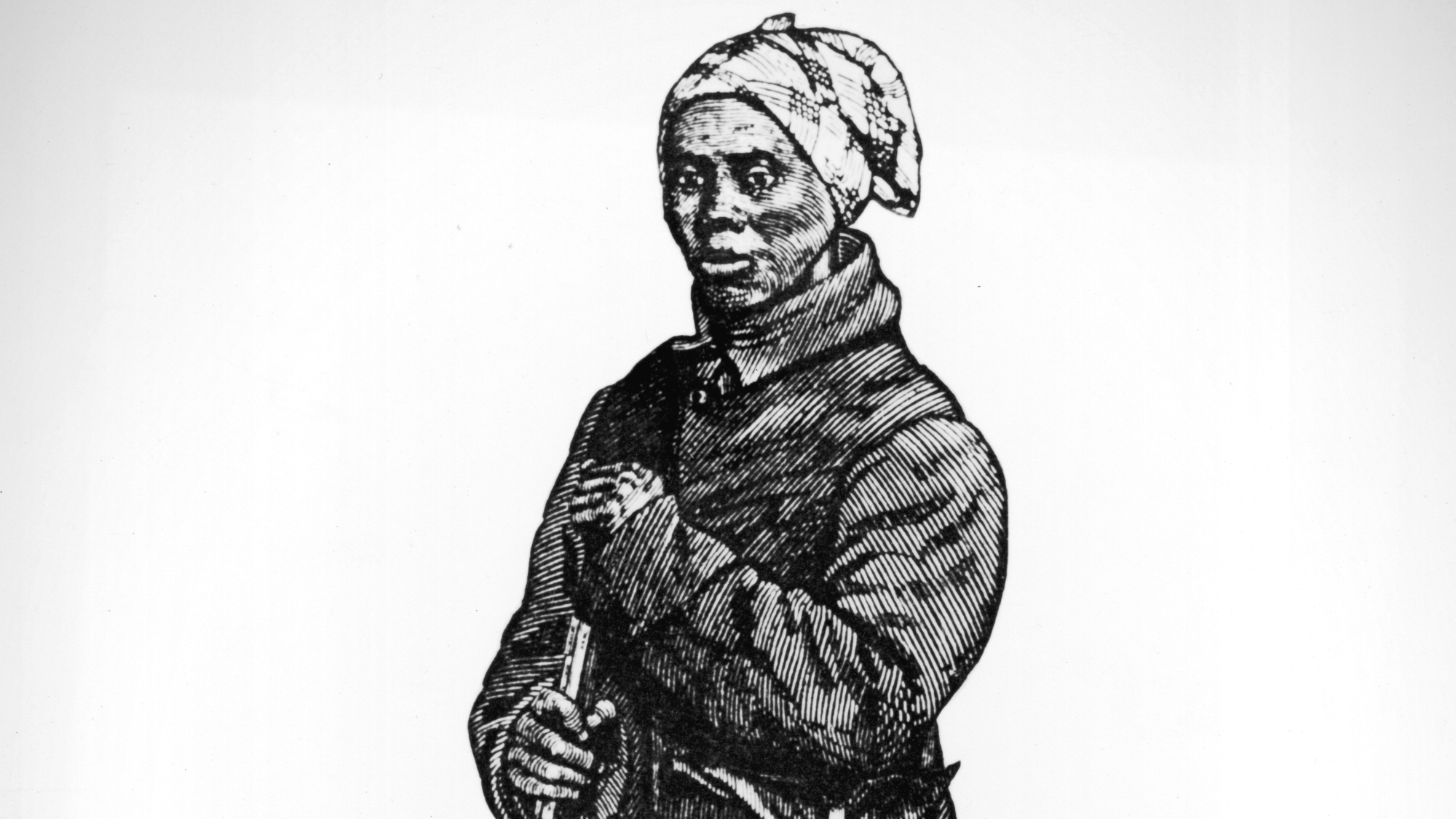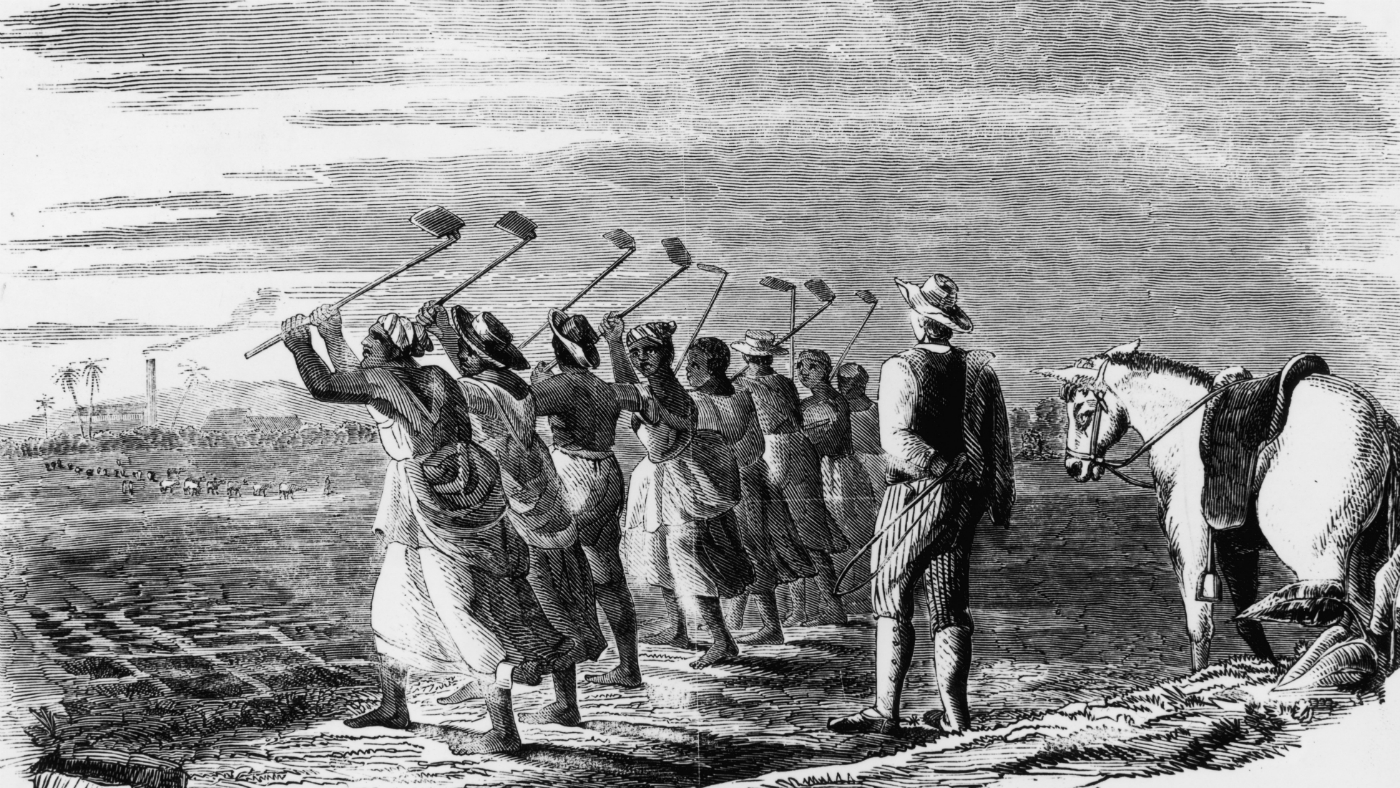What caused the American Civil War?
Fight between northern Union states against those in the south ‘determined what kind of nation the US would be’

A free daily email with the biggest news stories of the day – and the best features from TheWeek.com
You are now subscribed
Your newsletter sign-up was successful
A century and a half later, the American Civil War remains a key part of the history of the USA.
“While the Revolution of 1776-1783 created the United States, the Civil War of 1861-1865 determined what kind of nation it would be,” says historian Dr James McPherson in the American Battlefields Trust.
At the heart of the conflict were the interconnected issues of slavery and territorial political control. “Tensions over these concerns had been present from the start of the American nation,” says the British Library, as the US began as a collection of colonies which sought independence from the UK in the late 18th century.
The Week
Escape your echo chamber. Get the facts behind the news, plus analysis from multiple perspectives.

Sign up for The Week's Free Newsletters
From our morning news briefing to a weekly Good News Newsletter, get the best of The Week delivered directly to your inbox.
From our morning news briefing to a weekly Good News Newsletter, get the best of The Week delivered directly to your inbox.
“The problem of slavery was never clearly settled by the Founding Fathers, leading to decades of discussion, compromise and growing unrest about the future of the institution,” the website says.
So why did the American Civil War happen?
Differences between north and south states
Before any fighting took place there were already large societal differences in the mid-19th century between those in the northern states and those in the south.
A free daily email with the biggest news stories of the day – and the best features from TheWeek.com
Northerners had invested heavily in an expansive and varied transportation system and in financial industries, such as banking and insurance, as well as in a large communications network.
By contrast, the southern economy “was based principally on large farms (plantations) that produced commercial crops such as cotton and that relied on slaves as the main labour force”, says Encyclopedia Britannica.
The price of cotton skyrocketed in the 1850s, and the value of slaves rose in kind. So much so, in fact, that historian Stanley Engerman found a higher rate of growth of southern per capita income over northern between 1840 and 1860.
“When one takes into account the greater urbanisation of the north, in particular the northeast, and the resultant higher cost of living there, the position of the south is even more markedly improved,” says the Abbeville Institute’s William Cawthon.
The problem of slavery
While there were key societal divides between the two sides that made up the American Civil War, animosity grew when the perception in the south was that the north would try to impose its values upon them.
It was at this point that the issue of slavery became mixed up with the autonomy of the states themselves, particularly, just how much power a state had compared to federal authority.
Initially, the abolition of slavery movement was led by social reformers in the north who saw slavery as a sin. While those in the south who profited more greatly from the practice saw the desires of abolitionists as violating their rights.
At the heart of the debate was the key issue of whether slavery would be allowed in the newly created states that were joining the Union.
This dispute had originated in 1803 with the Louisiana Purchase, whereby the states of Arkansas, Missouri, Iowa, Oklahoma, Kansas and Nebraska, were purchased by the federal government from France.
The main flare-up between those who supported slavery and those who didn’t came in 1854. When Kansas was officially opened to settlement, there was a race to settle in the state between those who supported slavery and those who opposed it.
The state became a place of violence between the two groups and Kansas got the nickname “Bleeding Kansas” in recognition of what was going on there.
In 1860, Abraham Lincoln became the first Republican president on a platform pledging to keep slavery out of the new states of the Union. Subsequently seven slave states in the south seceded and formed a new nation, the Confederate States of America.
South Carolina was the first state to secede from the Union. On 24 December 1860, its government issued a “Declaration of the Immediate Causes Which Induce and Justify the Secession of South Carolina from the Federal Union.”
In effect, South Carolina seceded “because the federal government would not violate a state’s right to abstain from slavery and its concomitant policies”, says Quartz.
The so-called “cotton states” of Mississippi, Alabama, Florida, Georgia, Louisiana and Texas quickly followed suit, seceding in January and February 1861.
The war itself
The American Civil War broke out in April 1861 with the Confederates firing on Union-held Fort Sumter in South Carolina. When President Lincoln called for troops to suppress the rebellion, four more slave states seceded - Virginia, Tennessee, Arkansas and North Carolina.
Over four years, 237 named battles were fought, these were often characterised by their bitter intensity and high numbers of casualties.
In his book The American Civil War, John Keegan writes that the conflict proved to be “one of the most ferocious wars ever fought”. Without geographic objectives, “the only target for each side was the enemy's soldier”.
The bloodiest battle was the Battle of Gettysburg, Pennsylvania, that left nearly 52,000 men killed, wounded or missing in action. The Confederates were defeated, turning the tide of the Civil War in the Union’s favor.
After the battle, President Lincoln delivered the Gettysburg Address, which expressed firm commitment to preserving the Union and became one of the most famous speeches in American history.
By the spring of 1865 all the principal Confederate armies had surrendered, and when the Union cavalry captured the fleeing Confederate President Jefferson Davis in Georgia on 10 May 1865, resistance collapsed and the war ended.
After the war was over, the Constitution was amended to free the slaves, to assure “equal protection under the law” for American citizens, and to grant black men the right to vote.
The legacy of the war
The American Civil War “was fought over slavery, but not always on behalf of slaves”, says HuffPost. This is because the centerpiece of the Republican Party platform in 1860 was not emancipation, but “non-extension”, a policy that would prohibit slavery in the territories and halt the introduction of new slave states into the Union.
“Non-extensionism was not about abolishing slavery, but keeping it where it was,” HuffPost adds. “It was not until the Emancipation Proclamation, the executive order issued by President Lincoln on 1 January 1863 freeing slaves held in rebel states, that the war cause was transformed from non-extensionism to abolitionism.”
Despite this, Lincoln’s belief “that government of the people, by the people, for the people, shall not perish from the Earth” has “inspired generations across the world”, says the British Library. Appropriation of the war’s history “may still be contested but the legacy of democracy and liberty that the Union cause came to embody lives on”, it says.
-
 6 of the world’s most accessible destinations
6 of the world’s most accessible destinationsThe Week Recommends Experience all of Berlin, Singapore and Sydney
-
 How the FCC’s ‘equal time’ rule works
How the FCC’s ‘equal time’ rule worksIn the Spotlight The law is at the heart of the Colbert-CBS conflict
-
 What is the endgame in the DHS shutdown?
What is the endgame in the DHS shutdown?Today’s Big Question Democrats want to rein in ICE’s immigration crackdown
-
 Sudan's forgotten pyramids
Sudan's forgotten pyramidsUnder the Radar Brutal civil war and widespread looting threatens African nation's ancient heritage
-
 Harriet Tubman made a general 161 years after raid
Harriet Tubman made a general 161 years after raidSpeed Read She was the first woman to oversee an American military action during a time of war
-
 How slavery was finally abolished across the British Empire
How slavery was finally abolished across the British EmpireIn Depth Today marks the 184th anniversary of the enactment of the Slavery Abolition Act